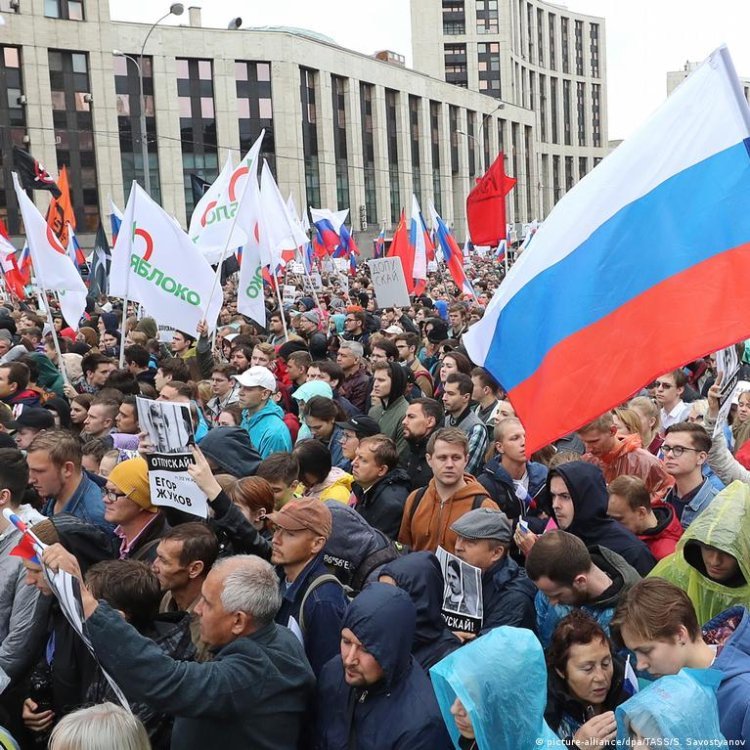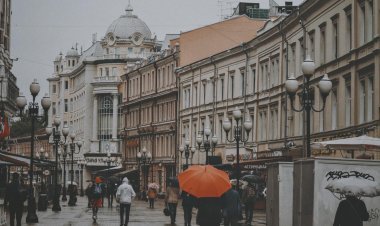Russian Repression: Journalists Detained in Moscow During Mobilization Protest._ISHEJA

In recent events in Moscow, a crackdown on protesters has led to the detention of several journalists, including those from foreign press organizations. The demonstration, organized by military wives, aimed to mobilize support for the return of their husbands and sons from fighting in Ukraine. Video evidence has emerged showing Russian authorities detaining individuals wearing "Press" vests near Red Square. This heavy-handed approach by the authorities has sparked concerns about press freedom and human rights in the country.
International Outcry and Support
The detention of journalists in Moscow has drawn international attention and condemnation. Among those held are journalists working for prominent media outlets such as Kommersant, France Press, and Spiegel, as well as human rights activists. The international community has voiced its support for the detained journalists and called for their immediate release. It is crucial to protect the rights of journalists to report freely and without fear of retribution.
Russian Repression Crackdown
In a somewhat hopeful development, one state media employee and three minors have been released from custody.
However, the release is conditional, as other journalists from federal and foreign media outlets remain in detention. These actions by the Russian authorities seem to selectively target journalists from specific media organizations, raising concerns about press independence and impartiality.
The impact of the expanded Foreign Agents Law in Russia is also evident in this crackdown. The law, which was expanded in late 2022, broadens the scope of individuals or groups who can be labeled as "foreign agents." This move by the Kremlin has been criticized as an attempt to silence dissent and stifle critical reporting on the ongoing war in Ukraine. Journalists now face the added pressure of being labeled as foreign agents, potentially compromising their ability to carry out their work effectively.
Bleak Future for Press Freedom
The incident in Moscow is just one example of the broader crackdown on independent media in Russia. As the government tightens its grip on the media landscape, journalists face increasing challenges and restrictions in their reporting. Independent media outlets that provide alternative perspectives and hold those in power accountable are being targeted and suppressed.
Journalists play a crucial role in reporting on events such as the mobilization rally organized by the military wives. Their coverage sheds light on important issues and serves as a vital source of information for the public.
However, the detention of journalists and the denial of access to legal representation undermine press freedom and inhibit the dissemination of unbiased news.
Government Response and Implications
The actions taken by Russian authorities in response to the protests and the subsequent detention of journalists have raised concerns about the state of democracy and human rights in the country. The heavy-handed approach and restriction of journalists' communication signal a disregard for press freedom and freedom of expression.
The expansion of the Foreign Agents Law adds another layer of repression to the media landscape. By labeling journalists as foreign agents, the government effectively silences critical voices and undermines the credibility of independent reporting. This has a chilling effect on journalists and further erodes press freedom in the country.
The implications of these developments are far-reaching. Press freedom is a fundamental pillar of democracy, and its erosion in Russia has significant implications for both domestic and international audiences. The international community must continue to monitor the situation and hold the Russian government accountable for its actions.
In conclusion, the detention of journalists in Moscow during the mobilization protest organized by military wives raises serious concerns about press freedom and human rights in Russia. The international outcry and support for the detained journalists underscore the importance of protecting journalists' rights to report freely and without fear of retribution. The bleak future for press freedom in the country, coupled with the government's response and the implications of the expanded Foreign Agents Law, highlight the urgent need for action to safeguard journalists and preserve press freedom as a cornerstone of democracy.












